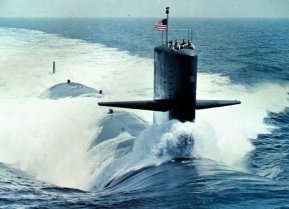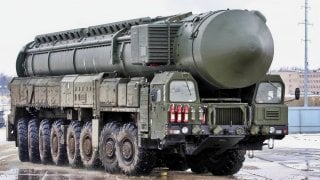Russia's Imperial Ambitions Are a Clear Threat to NATO
As long as rulers in Moscow use force to pursue imperial ambition, Russia's neighbors and NATO members will be under threat. Multiple factors could affect this, including the outcome of the war in Ukraine, Russia’s capacity to rebuild military power while repressing domestic opposition, and Western resolve.
With Imperial Ambitions Russia Will Remain an ‘’Acute Threat’’ to the United States and NATO: As long as rulers in Moscow use force to pursue imperial ambition, Russia's neighbors and NATO members will be under threat. Multiple factors could affect this, including the outcome of the war in Ukraine, Russia’s capacity to rebuild military power while repressing domestic opposition, and Western resolve.
In 2002, at a Summit in Rome, a high-profile Russia-NATO Council was created. It was to help alliance members and Russia to work as “equal partners” on “security issues of common interest.” Putin attended the conference and called the Council a “good tool“ to address mutual concerns. However, Russia resented its lack of veto power over NATO actions, especially enlargement.
In 2014 following the illegal annexation of Crimea, NATO suspended all practical cooperation with Russia.
Through most of the post-Soviet period, NATO members and potential entrants were concerned that Russia could again become a threat. In the 1990s under President Boris Yeltsin, few reforms were made in the ex-Russian Intelligence security services and the military. This was evident in the post-Soviet frozen conflicts and the disastrous 1994-96 war on Chechnya. In 1999, Russian elites resented NATO’s bombing of Serbia. For Putin and some others, this and Western recognition of Kosovo's independence became a, “foundational grievance.”
Over three decades of the modern independence of Ukraine, many Russians have been upset with its steady move westward. In 2004, the Orange Revolution led to the electoral defeat of pro-Russian Ukraine President Viktor Yanukovych, and another in 2014, the Maidan Revolution, led him to flee the presidency. These setbacks and Kremlin deceptions about NATO have inflamed Russian critics.
Today, the U.S. National Defense Strategy defines Russia as an “acute threat.’” NATO members are providing massive military and economic aid to help Ukraine resist Russia’s full-scale war. They are also countering intensified Russian efforts to sabotage politics in Europe and its support for Ukraine.
At last July’s summit in Washington, NATO warned, “Russia’s full-scale invasion of Ukraine has shattered peace and stability in the Euro-Atlantic area and gravely undermined global security. Russia remains the most significant and direct threat to allies’ security.”
This is unlikely to change as long as Putin’s regime remains in power. It will continue militarizing Russia’s economy and society, at great cost. Putin falsely portrays the war as being waged against NATO and the West. This helps him motivate Russians to fight and die for an alleged existential struggle. Putin may not curb his cruel plans even if the war reaches a negotiated end or armistice.
As more soldiers die or return home, the regime will find it harder to conceal the cost of the war to Russian elites and citizens. This happened in the 1980s with the Soviet war against Afghanistan. Its cost in lives, on a much lesser scale than in Ukraine today, stirred soldiers’ mothers to the opposition and helped bring down Soviet rule. This is a risk the Putin regime appears to fear. Hence, it is importing North Korean soldiers rather than conscripting larger numbers of young Russians.
In liberalizing the Soviet Union in the late 1980s, President Mikhail Gorbachev sought to reduce the military burden and improve ties with the West. To this end, he withdrew Soviet forces from Afghanistan and pursued arms control. No one knows if growing stresses in Russia will again bring forth liberalizing rule in Moscow. If this were to happen, the threat from Russia could ease.
It is prudent for NATO, however, to plan for a Russia that wages war on Ukraine and threatens others. Such a Russia might not vanish overnight even if new leadership in Moscow were to emerge and seek to rebuild Western ties.
About the Authors:
John Tefft is a Distinguished Chair in Diplomacy and Security at the RAND Corporation and former Ambassador to Russia, Ukraine, Georgia, and Lithuania.
William Courtney an adjunct senior fellow at RAND, was the U.S. ambassador to Kazakhstan, Georgia, and the U.S.-Soviet commission to implement the Threshold Test Ban Treaty.
Image Credit: Creative Commons and/or Shutterstock.


